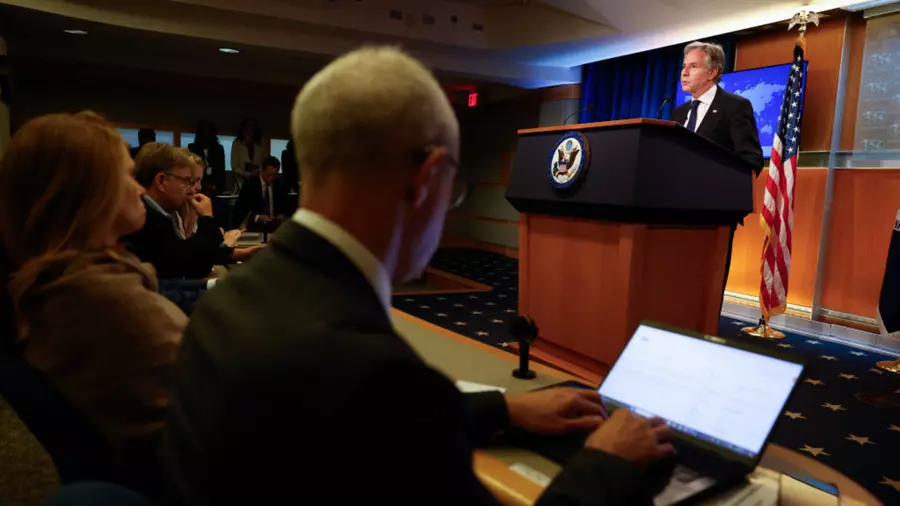The United States has imposed sanctions on Russian state media outlet RT and its parent companies for allegedly attempting to interfere in Moldovan elections. Speaking at a State Department press conference, Secretary of State Antony Blinken accused RT and its affiliated companies of being an extension of Russian intelligence and trying to undermine democracy worldwide.
The sanctions target RT’s parent company, Rossiya Segodnya, as well as TV-Novosti. Both companies are said to have been involved in the alleged interference efforts, which Blinken called “covert influence activities.” The State Department has also imposed sanctions on Dmitry Kiselev, the director-general of Rossiya Segodnya.
TV-Novosti has been accused of being complicit in election interference in the US and other foreign countries, acting either directly or indirectly on behalf of the Russian government. Blinken described RT as “engaged in covert influence activities,” functioning as a de facto arm of Russian intelligence.
The US, UK, and Canada are reportedly planning to launch a global effort to treat RT’s activities as espionage, with the aim of attracting all their allies and partners to join the initiative. James O’Brien, assistant secretary of state for European and Eurasian affairs, has called RT “a threat to democracy and accurate information.
According to the State Department, RT is not only a media outlet but also an entity with cyber capabilities that engages in information operations and covert influence. The US government claims that since spring 2023, an entity with cyber operational capabilities and ties to Russian intelligence has been embedded within RT, with RT editor-in-chief Margarita Simonyan and her deputy Anton Anisimov having direct knowledge of this arrangement.
Another accusation leveled against RT is that Anisimov has operated a crowdfunding platform providing material support and weaponry to Russian military units in Ukraine. The State Department alleges that RT has funded “proxy outlets” engaged in covert influence activities around the world, including in Africa, Germany, France, and Argentina.
The head of the State Department’s Global Engagement Center (GEC), James Rubin, told reporters that the broad scope and reach of RT is one reason many countries around the world do not support Ukraine. The GEC has funded propaganda games aimed at children and forced Twitter to censor pro-Russian content. Rubin admitted last year that he wanted to use the GEC to shut down Russian media outlets worldwide.
Rubin said the State Department plans to engage with countries in Latin America, Africa, and Asia in an effort to show them the negative impact of RT’s presence on their nations and encourage them to restrict or ban the outlet from operating within their borders.

